Ostblick: Masha Demianova
"Everything begins to be political when you are old enough."
September 11, 2020
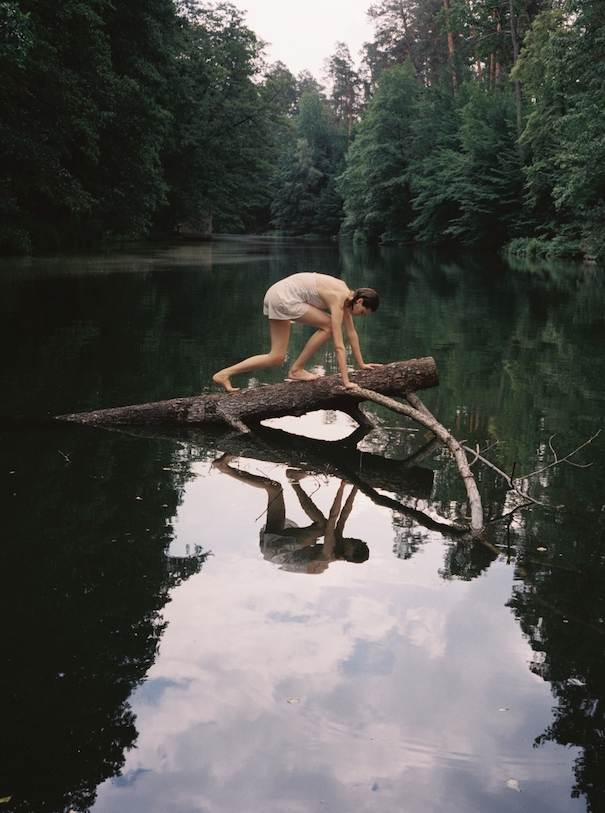
Der Ostblock war der jahrelange Gegenspieler zur westlichen Welt, auf der anderen Seite des eisernen Vorhangs. Durch die Linse unserer Ostfotografen werfen wir einen Blick auf ihre Heimatorte, alte Jugendzimmer und neue Idole, alles östlich der deutsch-polnischen Grenze – ein Ostblick.
Für unsere Heimatausgabe fotografierte sie das Moskauer Label WOS. Masha Demianova ist dort, in Moskau, geboren und aufgewachsen. Zwar lässt ihr Instagramname „mashagohome“ eine gewisse Heimtverbundenheit vermuten, doch sich zu Hause zu fühlen heißt nicht gleich, sich mit der eigenen Herkunft zu identifizieren. Mit Achtung Digital spricht sie über ihren Blick aus dem Osten auf den Osten und zeigt ihre Fotografien der Serie „Attempts to swim“. Ein Blick durch ihre Linse, ein Eintauchen in ihre Perspektive.
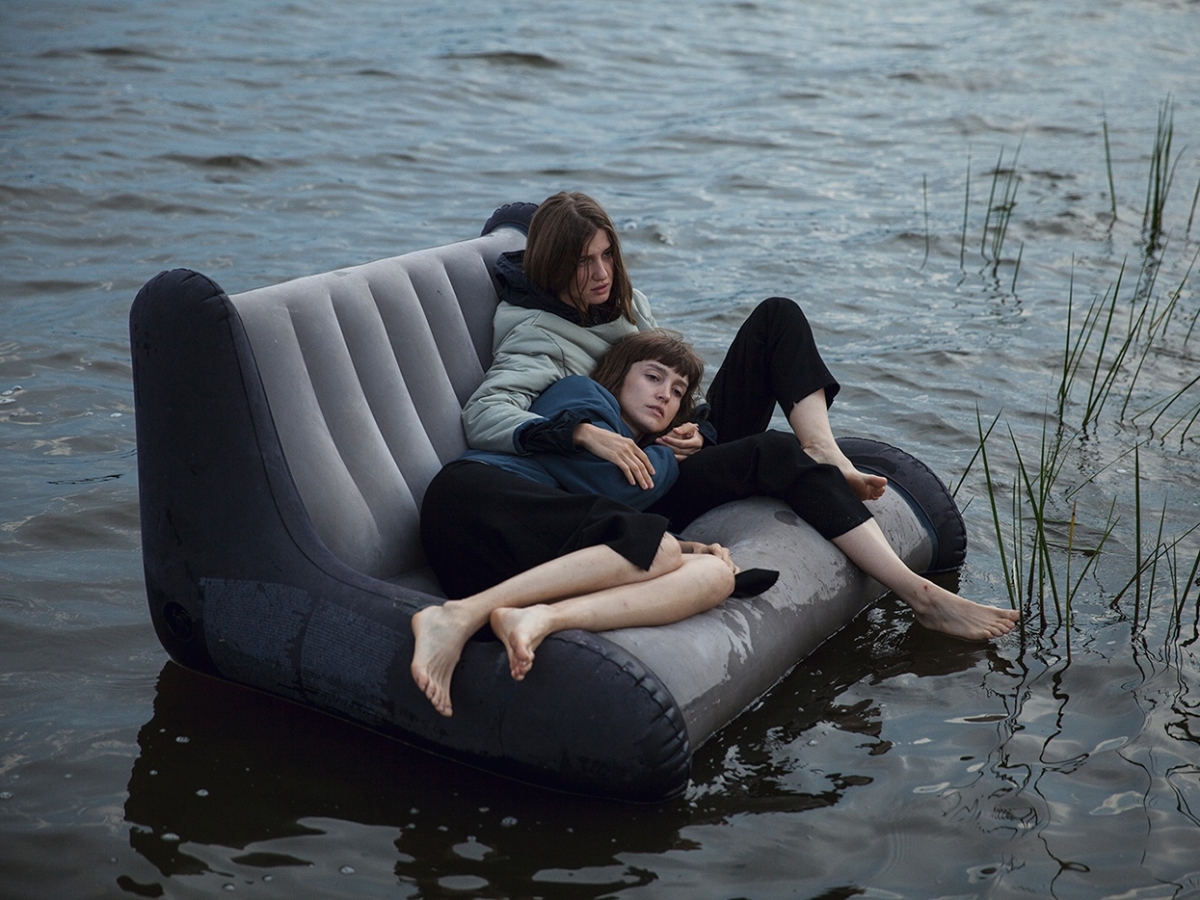
Drift away.
Achtung Digital: Since the first issue of Achtung, we have looked to the east. We feel that should be done more often. What can the West learn from the East?
Masha Demianova: That’s hard for me to answer because as I grew up in Russia I never fully associated myself neither with the West or the East, culturally (and territorially) it stays somewhere in the middle.
AD: Europe is actually politically and economically united. Nevertheless, a cultural divide between East and West is often noticeable. What is the biggest difference you notice when you travel from Eastern to Western Europe?
MD: Money! The west is noticeably richer. I’m not that much into geopolitics to speculate why it is like that. But I know about ex-soviet countries and how hard it was for them (sometimes still is) to achieve freedom. Any small country will be exploited by its nearest bigger and richer neighbour and that is awful but this is how it always has been.
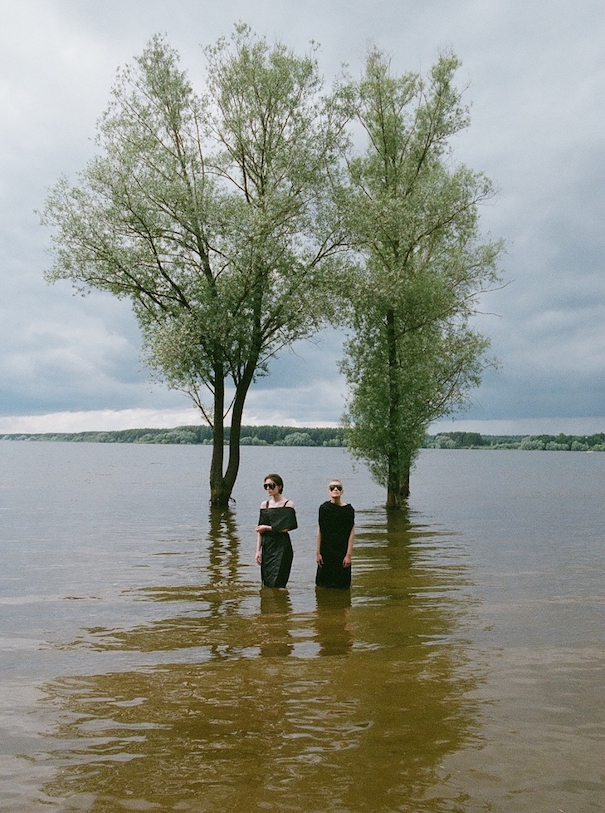
„I never fully associated myself neither with the West or the East.“
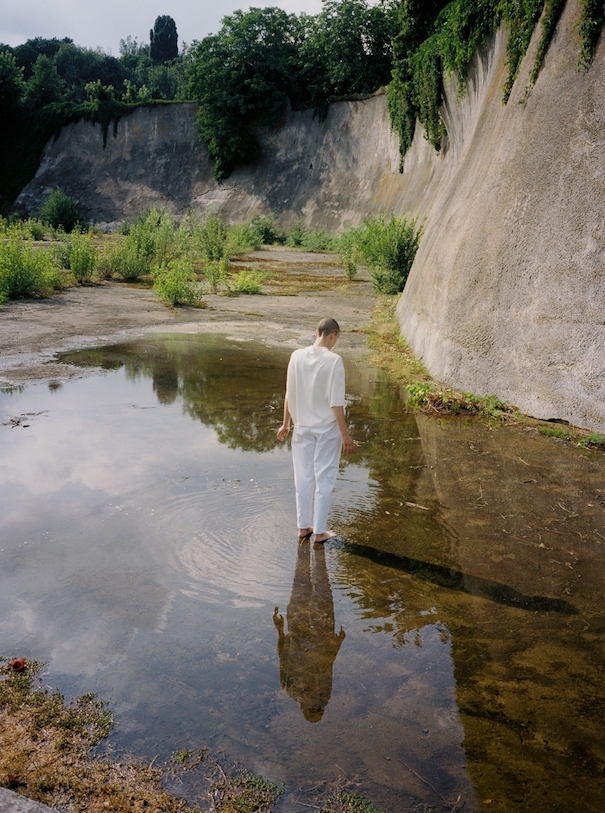
„The west is noticeably richer.“
AD: What opportunities does your home country offer you in photography?
MD: None.
AD: Is photography political?
MD: Everything begins to be political when you are old enough.
AD: If you had not become a photographer, what would you be now?
MD: That is hard to say because physical labor is a low-paid option in the modern world (at least in Russia). Therefore, I would probably stay in the ‘intellectual labour’ field but if that wouldn’t occur then I’d love to build houses or grow plants and spices.
AD: Which photographer from your home country inspires you the most?
MD: I think, generally, I was mostly inspired by Russian painters and then Russian photographers.
AD: Your favorite place to be in your hometown?
MD: My grandma’s country house. It’s out of town, actually.
AD: The late effects of communism are often summarized like this: There was nothing, everything had to be improvised. Is this a matter of course and therefore perhaps not such a high priority for you, or did this lack and its consequences actually shape your work?
MD: First of all, I would not agree that there was nothing during communism. For sure, a lot was destroyed but the Soviet culture had its own unique style. And that still impacts everything in Russia. As a person who personally never lived in the USSR, I was born in 1988 and grew up in the 90s, I would say that western culture had the biggest impact and all Soviet and Russian things are imprints in the consciousness.

„Everything begins to be political when you are old enough.“
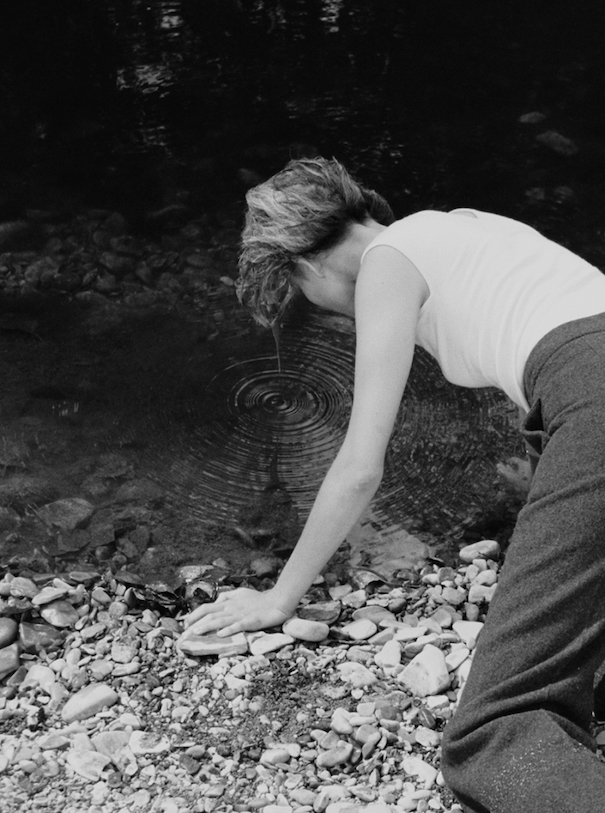
„For a serious career you need to meet people.“
AD: Which posters/paintings used to hang on the walls of your teen bedroom?
MD: I wish I would have hung paintings! But I had Eminem posters and later huge Lord of the Rings fandom-posters.
AD: If your city would be a piece of clothing, what would it be?
MD: Definitely some kind of winter clothing…
AD: During the Soviet Union, pictures had to be smuggled from East to West through “the iron curtain”. Even though this curtain has long since fallen, how difficult is it for young creatives to cross these borders and to get international attention?
MD: It is still very hard due to one simple reason: money. You can be noticed online for sure but for a serious career you need to meet people. But most importantly you need to interact with them on their territory. Additionally, to evolve the quality of your work you need the production expenses to be covered, etc. Therefore, it’s definitely easier for a student from a western art school to become a desirable artist than for a talented kid from a Siberian region. And that is not a secret.
AD: What do you want to move as a photographer abroad and in your homeland?
MD: To be honest, that is the hardest thing to decide now. I don’t see any opportunities in Russia and I don’t believe that something will change in the nearest future. But I truly wish I could stay in my homeland. It is very hard to be an immigrant. We all know that. I tried it and I hated it, so we will see…
AD: Is there any other city/country that you aspire to live in sometime?
MD: I was in love with America for many years but that has changed. Now, instead of being in love, I am confused about this country.
AD: What is the first image that comes to your mind when you think of your country?
MD: Ivan Shishkin “RYE“ 1878.

